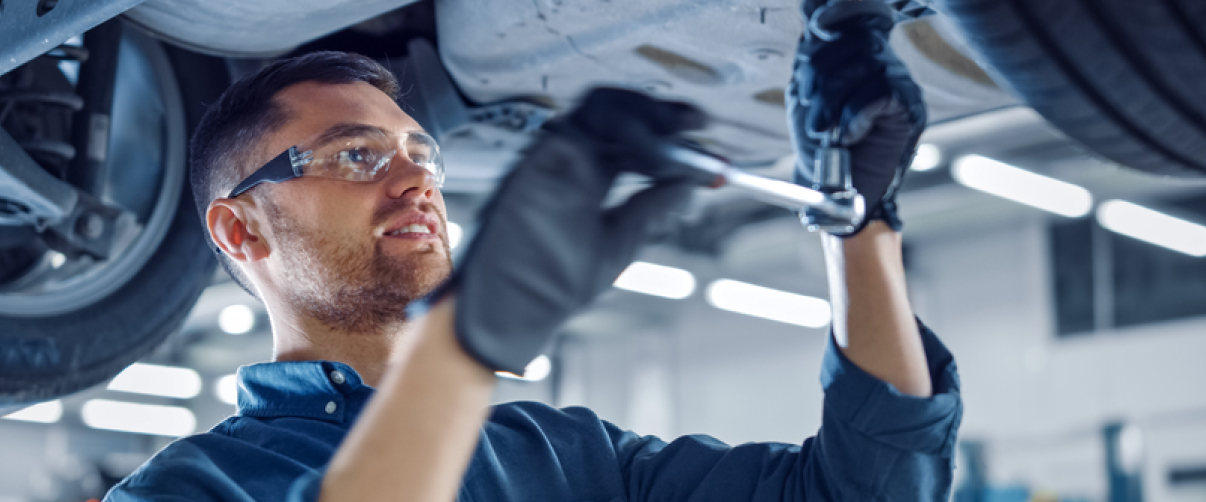In today’s fast-paced world, our vehicles are more than just a mode of transportation; they are an integral part of our daily lives. Ensuring they are in optimal condition is not just about preventing breakdowns but also about safeguarding our lives and those of others on the road. Regular vehicle inspections play a pivotal role in maintaining safety and performance standards. Let’s delve into why these inspections are indispensable for every vehicle owner.
The Road to Safety: The Crucial Role of Regular Vehicle Inspections

Enhancing Safety Through Early Detection
Regular inspections are essential for identifying potential safety hazards before they escalate into serious problems. Components like brakes, tires, and steering systems are critical for safe driving. Worn brake pads or deteriorating tires can lead to accidents, endangering not just the driver but also passengers and pedestrians. By conducting routine checks, you can detect and address these issues early, ensuring that your vehicle remains safe on the road.
Legal Compliance and Avoiding Penalties
Adhering to vehicle inspection regulations is not just a matter of safety but also a legal requirement. Failing to comply with inspection laws can result in fines, penalties, or even the inability to register your vehicle. Regular inspections help you stay compliant with safety and environmental regulations, avoiding any legal complications and ensuring peace of mind.
Optimizing Vehicle Performance
Routine inspections contribute significantly to your vehicle’s performance. They ensure that all mechanical components are functioning optimally, which enhances fuel efficiency and provides a smoother driving experience. For instance, a well-maintained engine with regularly checked fluids and filters can improve your car’s performance and extend its lifespan.
Economic Benefits: Saving Money in the Long Run
While some may view regular inspections as an unnecessary expense, they can actually lead to substantial savings over time. Early detection of minor issues prevents them from developing into major, costly repairs. By addressing small problems promptly, you avoid the high costs associated with significant vehicle breakdowns. Moreover, a well-maintained vehicle often enjoys better fuel efficiency, leading to savings at the pump.
Increasing Resale Value
When it comes time to sell your vehicle, a well-documented history of regular inspections can significantly boost its resale value. Potential buyers are more confident purchasing a car that has been consistently maintained and can verify its good condition. This transparency can set your vehicle apart in the used car market.
Environmental Responsibility
Vehicles that are regularly inspected and maintained tend to produce fewer emissions. Regular emissions testing and exhaust system checks ensure that your car meets environmental standards, contributing to cleaner air and a healthier planet. Staying on top of these inspections means you are playing your part in environmental conservation.
Peace of Mind on the Road
Knowing that your vehicle has been thoroughly inspected brings a sense of confidence every time you get behind the wheel. This assurance is invaluable, especially during long journeys or adverse weather conditions. Regular inspections mean you can drive with the knowledge that your car is reliable and safe.
What Does a Comprehensive Inspection Include?
A thorough vehicle inspection should cover several key components:
- Braking System: Checking brake pads, rotors, and calipers for wear.
- Tires: Inspecting for tread depth, pressure, and signs of uneven wear.
- Lights and Signals: Ensuring all lights and indicators are functioning correctly.
- Steering and Suspension: Assessing for any play or wear in the components.
- Fluid Levels: Verifying levels of oil, coolant, brake fluid, and more.
- Battery and Electrical Systems: Testing for proper charge and connectivity.
- Windshield and Wipers: Checking for clarity and effective operation.
By paying attention to these areas, you ensure that your vehicle is not only safe but also performing at its best. For fleet owners, implementing regular inspections can maximize vehicle uptime and prevent costly breakdowns.
Professional Assistance Matters
While some inspection tasks can be performed by vehicle owners, involving professional mechanics is crucial for a comprehensive assessment. Experts have the tools and knowledge to identify issues that may not be apparent to the untrained eye. Regular visits to a trusted auto care center ensure that your vehicle receives the attention it needs.
Conclusion
Regular vehicle inspections are a cornerstone of responsible vehicle ownership. They protect you legally, save you money, improve your vehicle’s performance, and most importantly, keep you and others safe on the road. By making inspections a regular part of your vehicle maintenance routine, you’re investing in a safer, more efficient, and more reliable driving experience.
Remember, an ounce of prevention is worth a pound of cure. Stay proactive with your vehicle’s health, and it will serve you well for years to come.











